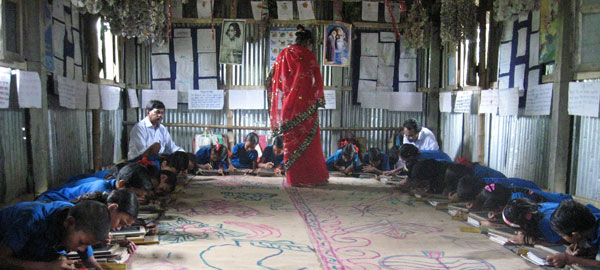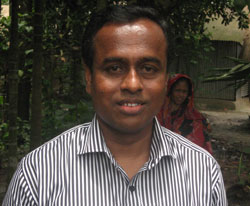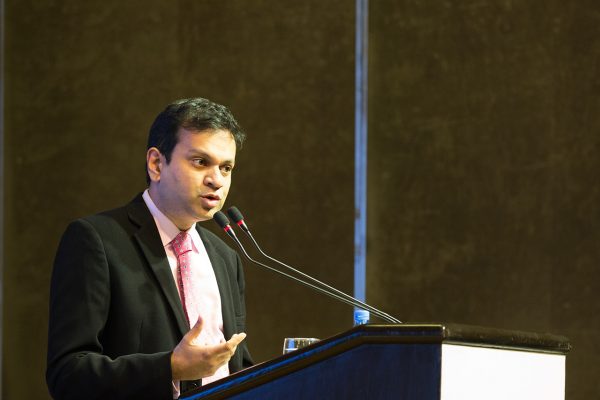Reading Time: 2 minutes
Many development organizations struggle with achieving scale—should more NGO’s consider partnerships to achieve their aims?
BRAC usually scales primarily through their infrastructure, but the success of their educational support program offers an inspiring example of the power of scaling through others.
Many development organizations struggle with achieving scale—should more NGO’s consider partnerships to achieve their aims?
BRAC usually scales primarily through their infrastructure, but the success of their educational support program offers an inspiring example of the power of scaling through others.
Since 1985, BRAC has educated nearly 5 million Bangladeshi students through its non-formal primary education program. In the early nineties, BRAC decided to educate children in Bangladesh’s most remote areas. These students did not have access to government schools. Dr. Safiqual Islam, BRAC’s Education Program Director describes his program’s approach as, “the school goes to the children, the children don’t come to the school” in this New York Times blog.
Sir Fazle Hasan Abed, BRAC’s founder and chairperson was committed to expanding the model through partners. He referred to the African proverb, “To go fast, go alone. To go far, go with others.” BRAC determined that the most efficient way to do this was by developing partnerships with local NGOs already working in remote areas. To enable these NGOs to replicate BRAC’s primary school model, it provided training, technical assistance and funds to support the program. The educational support program has been a great success in terms of results and scale—in 2009 and 2010 over 97% of the students received a passing grade on the government exam. To date, BRAC has partnered with over 400 organizations, representing nearly 4,700 schools and over 750,000 graduates.
As a result of the educational support program, many NGO leaders feel that they have improved their management, organizational and pedagogical techniques. The founder of GRAMAUS, Abdul Khaleque shared that he has closely observed BRAC and incorporated aspects of BRAC’s approach into his programs. Specifically, he has incorporated social enterprises and an emphasis on organization into his organization. Many of them have applied these lessons to other parts of their organization’s work, and use the model with schools that aren’t funded by BRAC.
They also feel as if they are a part of BRAC—and by extension part of something bigger than themselves. Khaleque said, “I am a member of the BRAC family.” Interestingly, partner NGOs’ visibility and credibility with donors and other organizations has been elevated as a result of their relationship with BRAC, leading to increased funding opportunities and new partnerships. This raises the question, are there other established organizations that could offer similar benefits to fledgling organizations?
To hear more from the NGO partner leaders, please see these videos:
“Sabalamby Unnayan Samity” (SUS)
For more detail on how BRAC scaled their primary education model throughout Bangladesh via local NGOs, please see the full case study. This case is part of the “Doing while learning” initiative and one of a series of four case studies analyzing how social innovations scaled in South Asia. The “Doing while learning” initiative is supported by the Rockefeller Foundation.
Amanda Misiti is a Knowledge Management and Communications Officer for BRAC’s Social Innovation Lab. Follow her on Twitter @AJoyMisiti.







